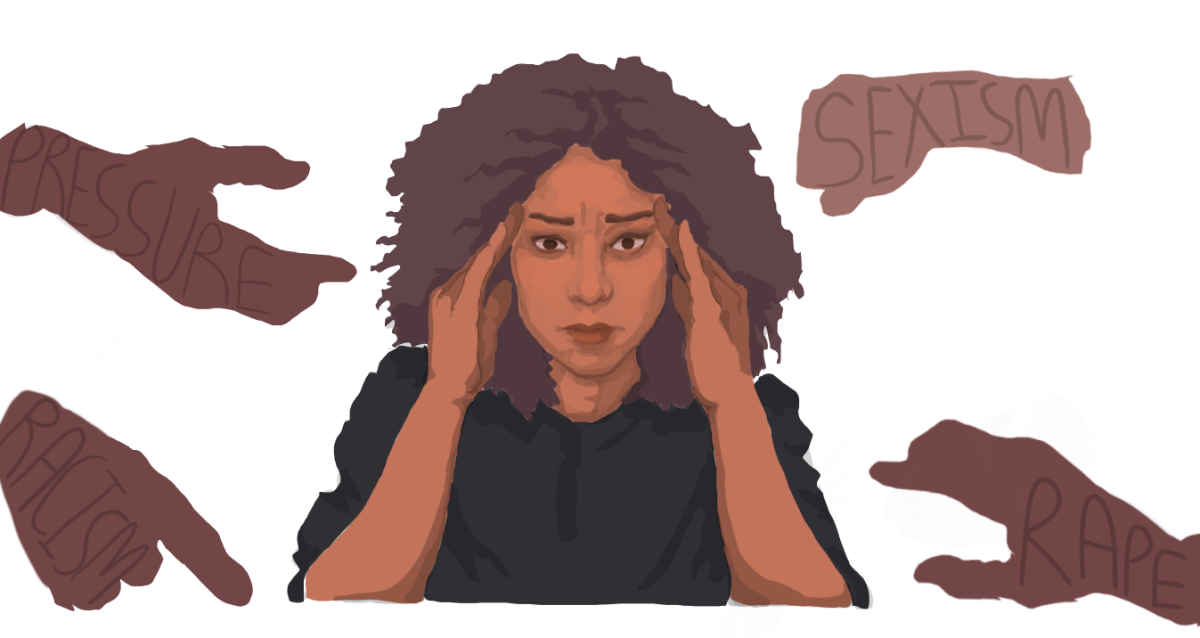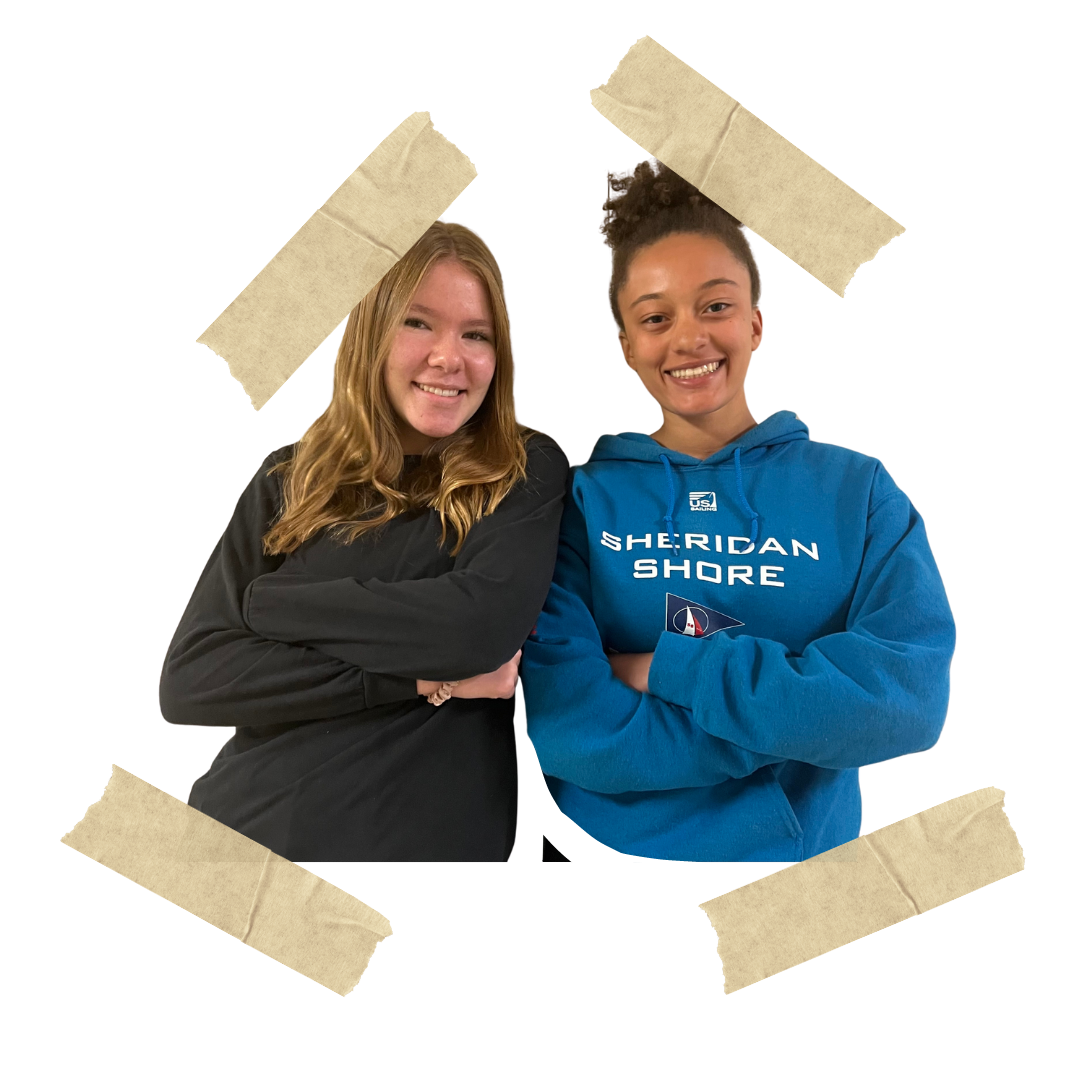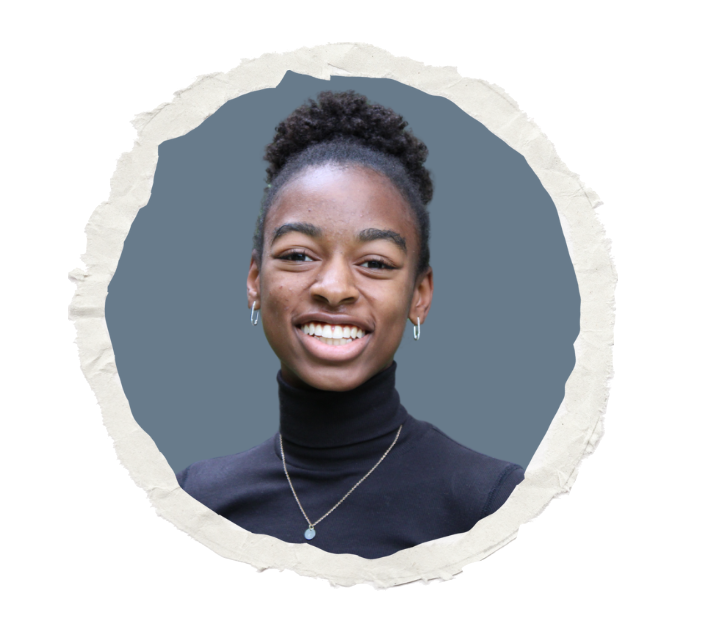 Trigger warning: Mentions of rape, police brutality, murder, derogatory terms
Trigger warning: Mentions of rape, police brutality, murder, derogatory terms
By Oxford Dictionary’s definition, to be bitter is to be “angry, hurt, or resentful because of one’s bad experiences or a sense of unjust treatment”. For a significant part of my life, I was bitter. The world beat me down. The societal suppression of being Black and a Woman tore me to pieces. I’m choosing to be vulnerable with the world, which has so often mistreated me for who I am. I’ve come to the realization that “the world’s” opinion doesn’t matter. This is for the bitter Black girls, and for those people only.
Oftentimes when issues like sexism and racism are mentioned, intersectionality is not. This article addresses a distinct form of sexism called misogynoir, coined by Dr. Moya Bailey, a well educated Black activist who teaches at Northwestern College. It means “the hatred, dislike, and distrust towards Black women.”.
I’m bitter. For years, I tried to find a community with feminists. I always thought to myself, maybe they understand me because they’re girls. I tried to find a community with anti-racists. Maybe they understand me because they’re fighting for my people. I was wrong. I have never felt more lost than when I was communicating with feminists who weren’t black. Or Black allies who weren’t women. I never truly realized why until my final redraft of this paper on Oct. 26th, 2023. My experience as a Black woman in this world is devastatingly different from the experiences of anybody else.
I’m bitter. Bitter because true freedom for us is limited. We’re meant to bear children without question. Black women lack autonomy on a mind-blowing level. According to The National Center on Violence Against Women in the Black Community, “1 in 4 black girls will be raped before they turn eighteen. 1 in 5 black women are survivors of rape. For every black woman who reports being raped, 15 do not.” Almost two years after being raped, I still struggle to believe that what happened to me was actually rape. My brain cannot truly come to terms with it for two reasons. One, because it was a life-altering event that changed the trajectory of my life. Two, because I was ignored, shamed, and repeatedly reminded of being raped after mustering up the courage to come out about it. I sometimes subconsciously tell myself that “I was just making it up,” because we are stereotyped to be overly dramatic and emotional. I truly thought that the grief from having my dignity and comfort in my body stolen from me was dramatic. I was terrified at the thought of admitting, even to myself, that I was raped, because of the shame that engulfed me.
This article started off as a short poem. I was venting my hurt and sorrow from a dreadful time in my life. When I joined the Evanstonian, I developed it into a column for the September issue, but it was pushed back to November due to concerns about my safety. Do you know how discouraging that is? Postponing an article addressing such potent and relatable issues perpetuates a cycle of shame regarding rape. I spilled my heart out onto the contents of this article. There was a long stretch of time when I wanted to cancel this article and move on. Yet, I speak up against something that millions of people dare not to speak up against because they are terrified of what will happen to them. When you hold back an article like Bitter Black Girl, not only do you make me feel like I am the problem, but you keep other victims from understanding that they are not.
Where do I walk between the crossroads of feminism and Black empowerment? I walk my own path, I’ve made my own path.”
I had never seen such a lack of humility in objectifying others until I realized how people treated Black women’s bodies. As stated by Vox Healthcare Journalism, the 13 states (mostly Southern) that overturned Roe vs Wade house half of the Black population in America. Black people in 16 of 17 Southern states experience a higher rate of poverty compared to anybody anywhere else in the country. 63 percent of pregnancies for Black women are unplanned, and Black women are three times more likely to die during pregnancy compared to anybody. More statistics from The National Center Against Women in the Black Community show that 40 percent of confirmed sex trafficking victims are Black women. This means that Black women, who are unintentionally impregnated due to rape, trafficking, or a lack of sex education due to impoverishment are not able to access safe abortions. A large majority of them live impoverished. They cannot afford to travel out of the South for an abortion. They cannot afford preventative measures, as many of them live in contraceptive deserts. So they will keep their babies instead, with a high possibility that they die from the unexcusable treatment they receive in the hospital. Or, they will risk death through an unsafe abortion. Or, instead, keep the baby, give birth, and live in debt from a human being they cannot afford. Black women will suffer. We are suffering. Misogyny is not just a pay gap. It is not just a jab at our hair. It is murdering us. Misogyny is a murderer.
I’m bitter. “If George Floyd didn’t use a fake 20 dollar bill, he’d be alive.” His “fake” 20 dollar bill was not counterfeit, and if it was, it didn’t constitute a murder. As he was dying, he was being laughed at, recorded, and humiliated. In what world does a fake 20 dollar bill result in public humiliation as you’re being suffocated to death? “If Elijah McClain wasn’t wearing a ski mask, he’d be alive.” Elijah McClain had a blood circulation disorder which made him chill easily, and his ski mask was worn to keep him warm. Even after offering his ID, proving he has no gun, and telling the officers that “you are beautiful and I love you,” a sedative was forcibly injected into him while he was restrained in handcuffs. He was suffocated by police and died of cardiac arrest days later.
Black Lives Matter was created by three Black women in response to the murder of 17 year old Trayvon Martin. Their names are Alicia Garza, Patrisse Cullors, and Opal Tometi. In a movement that focuses on Black lives, Black women are not spoken about enough. It is about all of us, yet the mainstream outreach only calls for half of us. I know exactly how people will feel reading this statement. “Malory, how can you say such a thing? Don’t demoralize BLM like that.” Open your eyes. It is not my intention to criticize a movement that I wholeheartedly support. Black women are slowly dying from the silent and loud plights of misogynoir. We know the gut-wrenching stories of Eric Gardner and Ahmaud Arbery. But we don’t know India Kager or Kayla Moore. The Black Lives Matter movement is about us too, and it’s time people treat it that way.
Where do I walk between the crossroads of feminism and Black empowerment? I walk my own path, I’ve made my own path. I’ve drastically grown since my original poem and first draft for the September issue. Being a Black woman is so devastatingly beautiful, there is truly nothing like it, for the better and for the worse. This is for the girl who quietly suffered for years. The girl who wanted to be embraced. The girl who didn’t want to just stand up and move on, but chose to do so for survival and for peace. There will always be a fire blazing inside of me, but now it won’t be met with the judgment and anger that has been inflicted upon me for years. Instead, it will be met with the love and grace I have built up within. And for the other bitter Black girls, pick yourself back up and start paving your own path.
















